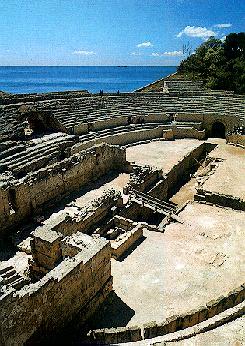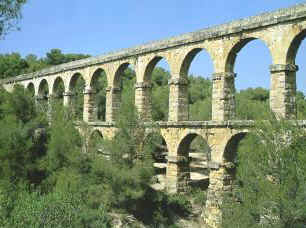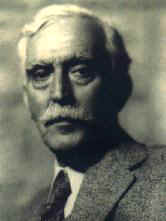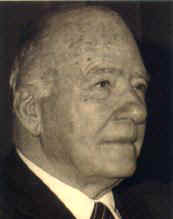|
 |
I“M A CATALAN!
AN INTERNET PROJECT ON CATALONIA AND HER PEOPLE
Home Geographical Aspects Historical Aspects Language and Literature Romanesque Art Modern Art The Performing Arts
Political Parties The Government Agriculture and Cattle-Raising Commerce and Industry The Musical Tradition Sports
Catalan Cuisine Popular Traditions and Festivals Credits Page
Devised by Joan M. Dķez Clivillé

"Rhode" and "Emporion" were two Greek settlements in Catalonia, back in 600 BC. Both were near present-day Girona.


The Greek ruins at Empśries. The beach at Empśries.
The ancient Greeks were trying to expand their trade and they were also looking for metals (mainly copper and iron). They introduced important cultural elements into the country. The ruins in Empśries are well worth a visit.
The ancient Romans arrived in Spain around 218 BC. They were involved in different battles and, as a consequence, they ended up near present-day Tortosa. Later they went north and settled in Tarraco (now Tarragona), which became the capital of a Roman province called "Citerior" at first and then "Tarraconense". Tarraco was one of the most important cities of the Roman Empire. The ancient Romans built roads, lots of beautiful buildings and an impressive wall (part of which can still be admired today.)


L“Amfiteatre. L“arc de Berą.

Aqüeducte (Pont del Diable)
During the War of Succession the army of King Felipe V of the Borbon family put a siege on Barcelona which lasted for fourteen months. The city surrendered on the 11th September 1714. This historic defeat has become a symbolic reference for the Catalans, who suffered a great deal as their way of life was severely affected. Rafel de Casanova -a Catalan leader- was killed during the siege. From the 19th Century onwards, on the 11th September flowers are laid at his monument in Barcelona and political meetings are held everywhere.

Great public demonstrations on that particular day show the strenghth and courage of the Catalans, who love their land, their language and their culture.

Francesc Macią was born in 1859. He trained as a professional soldier and became a Captain in 1882. In 1905 the Spanish government passed some anti-Catalan laws. There was trouble. Macią refused to join his companions in their fights against the Catalans. Instead he became an MP and was consequently expelled from the Army. In 1922 he started his own political party: "Estat Catalą".
During Primo de Rivera's dictatorship (1923-30) Francesc Macią lived in exile in France. He came back in 1931. Then he gave the Spanish government a project to make Catalonia politically autonomous. "L'Estatut d'Autonomia" was approved in 1932 and Macią was elected president of the "Generalitat de Catalunya". He died the following year. He has been one of the most popular men in our country.
General Francisco Franco's regime was very hard for everybody, the Catalans in particular. After the Spanish Civil War (1936-1939) all Catalan institutions were declared illegal. Many people were executed. Others, like Josep Tarradellas, exiled.

Josep Tarradellas
"La Generalitat" was not restored till 1977, two years after the General's death. Tarradellas returned home and recovered his title of "President de la Generalitat". Jordi Pujol succeeded him a few years later.
After Franco's death democracy was restored. Since then, great efforts have been made to put the Catalan language (which had been banned officially during Franco's regime) back to life. The process is slow. There are a great numbers of immigrants in Catalonia (who are very welcome) and they have Spanish as their mother tongue. And it is a fact that most of the newspapers and magazines in the market are written in Spanish. The Catalan language, however, is slowly coming back to life.
Two widely-read papers. Main Catalan TV channels.
Our national radio station.



